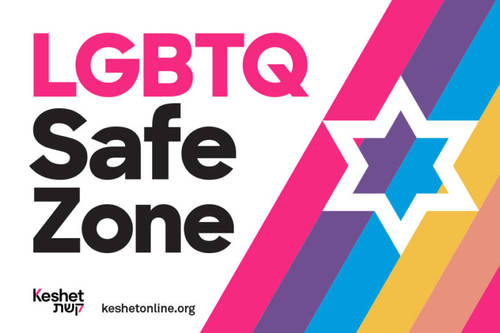Illumin8! Reflections
The word "Hanukkah" means "dedication," which is about devoting someone or something for a particular purpose. For each of the holiday's eight nights, Rabbi Knopf and several congregants offer a reflection. We hope you'll use these ideas when lighting your candles each night. And, just maybe, you'll be inspired to dedicate yourself to a higher purpose this year. Hanukkah Same'ah! Happy Hanukkah!
Night 8: Forgiveness
By Aaron Goldberg
Hanukkah celebrates Jewish strength, but also vulnerability. As we hopefully enjoy the current festival of lights, many of us likely have mixed feelings about 2017 as the year draws to a close (although on the Jewish calendar, 5778 has only just begun!). After an unusual meeting with counter-protesters opposing those who returned to Richmond recently in support of the Monument Avenue civil war statues, I pondered the concept of forgiveness as an antidote to anger. Perhaps a departure from what we usually think about during Hanukkah, this idea may provide a small, but shining light with which to approach the coming year.
Across the past year, we all have seemed to share various doses of outrage, indignance, exasperation, anger…and, well, an overwhelming sense of “oy vey!” Hardly a day goes by without another example of some indignity that stokes the embers of our emotions. Like no other time, these issues have affected our ability to interact with neighbors and others, due to real and perceived disagreements, with whom we could once have been at least cordial. To be sure, social media drastically magnifies these problems, but they do exist in the real world too. What I like to call our collective indignance meter is in the red, and seems to have no limit (kind of like a thermometer on a hot and muggy day).
Listening to a recent podcast involving an interview with the celebrity Rabbi Steven Leder of a “mega” synagogue in California, he discussed forgiveness in Jewish life. As the Christian saying goes, “if G-d didn’t forgive sinners, then heaven would be empty.” Few among us can argue with that sentiment, if not the details. As Jews, we seek atonement, or complete forgiveness, of our sins from the prior year during Yom Kippur. This version of forgiveness is not granted by any human, rather more spiritual, and perhaps granted only by G-d. Islam has similar teachings about forgiveness.
On an individual level, according to Rabbi Leder, forgiveness requires acknowledgment of the actions by the wrongdoer (who is required to ask forgiveness under Jewish law). The harm may take many physical or emotional forms.
Second, the wrongdoer must pay their debts, be they physical (such as money) or emotional. A sincere apology could be sufficient. Jewish teaching admonishes us to be willing to forgive wholeheartedly when asked for forgiveness. The offended person may offer to forgive any debts and accept that the sinner has resolved their obligations. Of course, this may follow a process of negotiation, but does not necessarily mean a complete reconciliation. Mechilah (Hebrew for “forgiveness”), should only be given if the sinner has made appropriate efforts to correct the wrongdoing. Otherwise, the offended person is not obligated to offer forgiveness. Conversely, the offended person is morally bound to give forgiveness to a sinner who has shown true repentance.
Lastly, as Rabbi Leder noted, the sinner must not commit the sin again. Presumably, the process of forgiveness renews for future transgressions, and of course all sins are by no means equal. Again, the harmed person should be gracious in granting forgiveness, but is not required to do so. Also, forgiveness does not mean FORGETTING, but allows both the wrongdoer and the wronged to move on.
As I try to balance my own sense of indignance, frustration and anger at the divisions so apparent in our society lately, I think it important to challenge myself to be more willing to forgive. Combining that with a true sense of tolerance (i.e., willing to accept the existence of opinions or behavior that one doesn’t agree with) and a willingness to engage and listen to those with whom I disagree, seems to be the way to ease these tensions. In the words of the great Rabbi Yoda…”fear is the path to the dark side. Fear leads to anger. Anger leads to hate. Hate leads to suffering.” Sure, these words may be a bit silly, but they are worth considering as we try to engage with others in a positive way.




